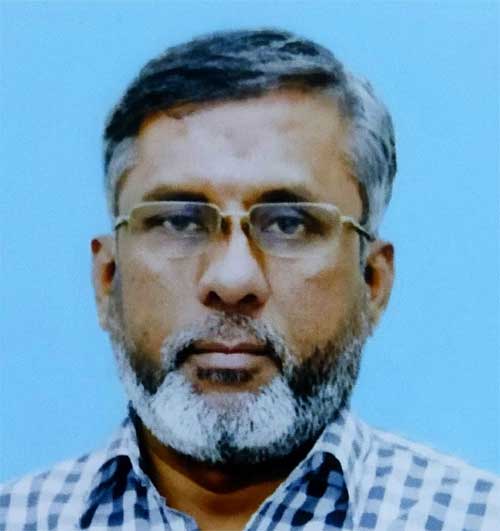Every year on March 23, Pakistan Day is celebrated with enthusiasm and fervour by millions of Pakistanis living around the world. The day conveys Pakistan’s sense of historical significance and national pride, commemorating a pivotal moment in the journey towards the establishment of Pakistan – the Lahore Resolution of 1940. This important struggle organized under the leadership of Muhammad Ali Jinnah laid the foundation for the establishment of a separate homeland for Muslims in India. The Lahore Resolution, also known as the Pakistan Resolution, was an expression of years of political struggle and the aspirations of millions of Muslims in the subcontinent. That day, Muhammad Ali Jinnah, a strong leader of the All India Muslim League (AIML), addressed party members in Lahore advocating the formation of a separate federation comprising Muslim-majority areas. Emphasizing the fundamental difference in cultural and religious identity between Hindus and Muslims, a collective consciousness was awakened in the Muslim community under his energetic leadership. March 23, 1940 is a testament to the Muslim population’s unwavering determination and resilience in achieving their right to self-determination and political independence. It was a beacon of hope amid India’s turbulent political landscape, a vision of a future where Muslims could run their affairs according to their beliefs and values. The importance of this historic day is more than mere commemoration. This day commemorates the sacrifices and struggles of the forefathers of the nation.
The Lahore Resolution paved the way for the eventual achievement of an independent Pakistan on 14 August 1947. It is celebrated as the cornerstone of the nation’s identity, reflecting the spirit of unity, faith and discipline and defining the Pakistani ethos. Every year, Pakistanis from all over the world come together to celebrate March 23 with unprecedented fervor. On this day, various events are organized by the government and civil society organizations to pay homage to the memory of those leaders and workers who dedicated their lives for the establishment of Pakistan. The Lahore Resolution Day Parade, organized by the Pakistan Armed Forces, Army, Navy and Air Force, is held as the centerpiece of the celebrations, which showcases the military strength and unity of the country. Additionally, educational institutions, media outlets, and community organizations host seminars, cultural shows, and exhibitions to reflect the significance of the Lahore Resolution and its lasting impact on Pakistan’s history and identity. As Pakistan continues its journey towards development, it is important to remember these ideals and principles on March 23, 1940.
The Lahore Resolution serves as a guiding light, inspiring future generations to uphold the values of democracy, equality and justice envisioned by the nation’s founders. In commemoration of the Lahore Resolution, Pakistan reaffirms its commitment to the ideals of independence, sovereignty and self-determination. It is a day to pay tribute to the sacrifices of the past, celebrate the achievements of the present and envision a future guided by the principles of unity, faith and discipline, which are the foundation of the Pakistani nation. Quaid-e-Azam Muhammad Ali Jinnah along with his loyal companions started a tireless journey towards achieving a separate homeland for the majority of Muslims living in the subcontinent under the flag of Pakistan. Their tireless efforts, driven by years of political maneuvering, negotiation, and advocacy, were driven by an unwavering commitment to the principles of justice, equality, and self-determination. Quaid-e-Azam Muhammad Ali Jinnah, the great figure behind the creation of Pakistan, was supported by a cadre of eminent personalities who played an important role in the freedom struggle. Some of the notable names are Allama Muhammad Iqbal, the renowned poet, philosopher, and politician, laid the intellectual foundations of the concept of a separate Muslim state in his famous Allahabad Address in 1930. His insightful poetry and philosophical insights contributed to the creation of Tehreek Pakistan for millions of people. Mardahan Liaquat Ali Khan Known as Quaid-e-Azam’s right-hand man, Liaquat Ali Khan was a close associate and confidant of Jinnah. He was instrumental in organizing the All India Muslim League and served as the first Prime Minister of Pakistan, working tirelessly for the country’s stability and development. A prominent Muslim leader, journalist, and activist, Maulana Muhammad Ali Johar was a staunch supporter of Muslim rights and played a prominent role in the Khilafat Movement and the Pakistan Movement. His tireless efforts helped mobilize Muslim support for the cause of independence. Quaid-e-Azam’s sister, Fatima Jinnah was a strong personality in her own right. She actively participated in the Pakistan Movement, supporting the creation of Pakistan with her brother and later advocating for women’s rights and social welfare issues. Sir Aga Khan-III as the spiritual leader of the Ismaili Muslim community and a prominent political figure, Sir Aga Khan Swaim played an important role in the Pakistan Movement. His influence and support played an important role in gaining international recognition and support for the creation of Pakistan. Chaudhry Khaliq-ul-Zaman, a prominent Muslim League leader, was instrumental in organizing Muslim League activities in Punjab and played a key role in the Lahore Resolution of 1940, which laid the foundation for Pakistan. Sardar Abdul Rab Nishtar: A close associate of Quaid-i-Azam, Sardar Abdul Rab Nishtar was a prominent Muslim League leader and served as a key strategist and organizer during the Pakistan Movement. He played an important role in mobilizing support for the cause of independence, especially in the Frontier Province (now Khyber Pakhtunkhwa). These are some of the many prominent names who stood shoulder to shoulder with Quaid-e-Azam Muhammad Ali Jinnah in the struggle for the creation of Pakistan. Their collective efforts and sacrifices brought the dream of an independent Muslim state to fruition in the subcontinent. Jinnah’s visionary leadership and steadfast determination served as the driving force behind the Pakistan Movement. With unparalleled eloquence, he articulated the aspirations of the Muslim community and tirelessly championed their cause on both national and international platforms. By Jinnah’s side stood a group of people who dedicated their lives to the cause of Pakistan. From influential politicians to grassroots activists, everyone played an important role in mobilizing support, raising awareness and motivating the masses to realize the dream of Pakistan. Their efforts were not without challenges and sacrifices. They faced opposition from various quarters, encountered obstacles at every turn, and faced innumerable trials and tribulations. Yet, his unwavering faith in the righteousness of his cause carried him forward undaunted by difficulties. Through their collective efforts, Quaid-e-Azam and his associates laid the foundations of a nation based on the principles of democracy, personal and religious freedom. His legacy inspires generations of Pakistanis to uphold the values of tolerance, inclusion and unity in diversity. Pakistan celebrates Lahore Resolution Day on March 23 every year, it pays tribute to the foresight and perseverance of its founding fathers and reaffirms its commitment to building a prosperous and inclusive society for all its citizens. The sacrifices made by Quaid-e-Azam Muhammad Ali Jinnah and his colleagues serve as a reminder of the enduring power of determination, courage and unity in times of adversity.
Pakistan Day 23rd March is a day of hope and struggle




